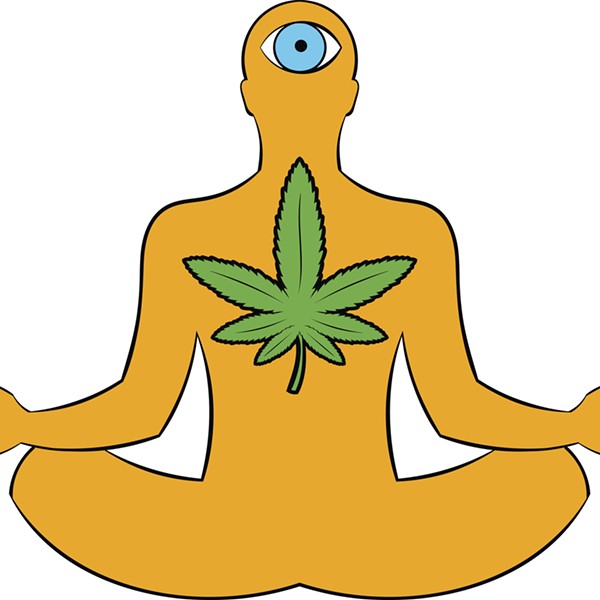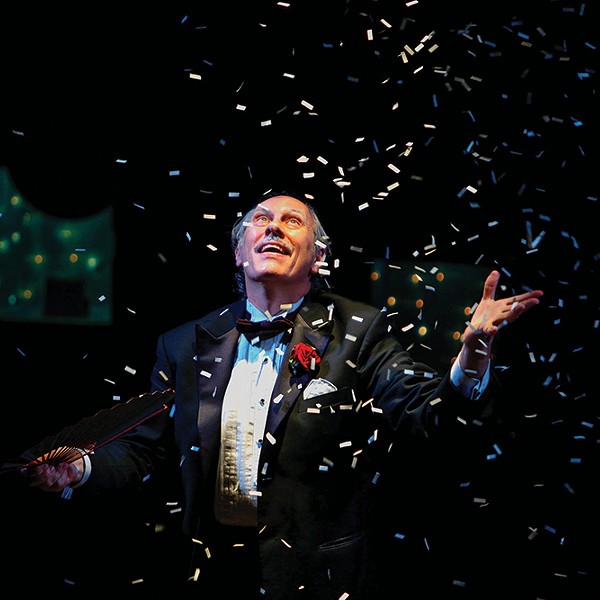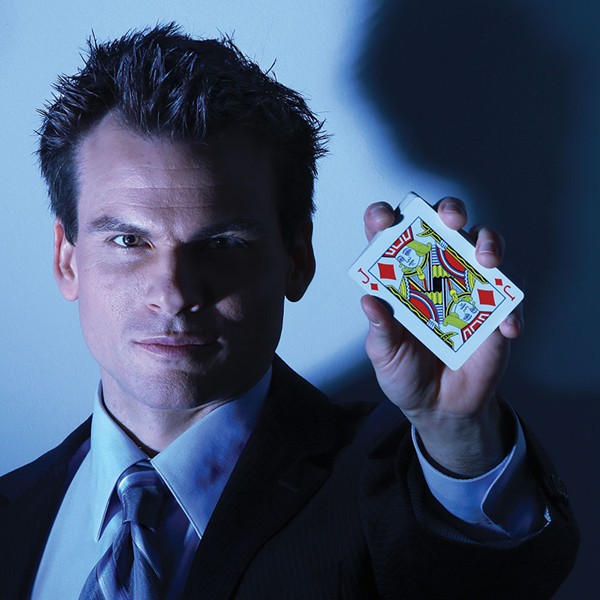Esteemed Reader of Our Magazine:
Two antennas meet on a roof, fall in love, and get married. The ceremony wasn't much, but the reception was excellent.
—unknown
I remember the first time I started crying laughing while reading a book. I was about 12 and I was reading Edward Abbey's The Monkey Wrench Gang. As a budding anarchist, I felt I had found my tribe within the gripping story of heroic and fun-loving ecoterrorists.
Though I haven't read the book in 30 years, I remember everything about where I was the moment all the pieces came together and fell apart at the same time and I laughed so hard I cried. I was sitting on the couch in front of the woodstove. Snow fell outside the big window, and my tiger cat purred beside me.
The protagonist, a Marxist revolutionary code-named Rudolph the Red, was on the lam in the New Mexico outback. He was in a sleeping bag with his very sexy girlfriend, enjoying the postcoital afterglow.
And I quote:
"What's the matter, Rudolph?" she said. "It's raining." "You're nuts. It's not raining. Go to sleep." "It is. I felt it." She poked her head out of the bag. "Dark all right...but it's not raining." "Well it was a minute ago. I know it was." "You were dreaming." "Am I Rudolph the Red or ain't I?" "So?" "Well, goddammit, Rudolph the Red knows rain, dear." "Say that again?"
It was like a car accident in my mind. Everything went into slow motion as I recognized the dual meanings and saw them come into sync and overlay, until they clicked together and revealed a tangential contradiction, an elbow of yes and no conjoined, and it made my heart sing. I read the dialogue over and over, laughing, whooping, fist-pumping, as though celebrating a great victory.
Thus is the potency of a pun. However, is the above dialogue actual punning, or is it a variant; for no words are mangled or misused in the process?
I came to discern this subtle distinction after seeing a French film called Ridicule, in which a young nobleman is working to impress the king at Versailles, who himself is a connoisseur of wit but hates puns:
[Louis XVI]: Be witty this minute! Use me, for example. / Sire, the king is not a subject. / ''The king is not a subject.''* / Admirable! / Not a pun, I hope? / No, Sire. / A play on words. (*fr. O Sire, le roi n'est pas un sujet.)
I found this distinction astounding, and illuminated for me the possible refinements of word-form humor.
Contrary to appearance, my fascination with puns does not originate in popular culture. In fact, there seems to be a congenital predisposition for puns in my family. We all do it. As a child I was forced to learn a kind of verbal vigilance like Clouseau on guard against Kato's regular attacks. For instance any utterance vaguely resembling the word "thanks" was automatically a booby trap—
What's that instant decaffeinated coffee called? / You mean Sanka? / You're welcome!!
Snagged.
The joke that seemed to bear endless repetition was
What's the best time to go to the dentist? / 2:30. / Why? / Because tooth hurty!
Of course I rebelled on leaving home and took a vow never again to utter a pun. I came to see puns as linguistic mutilation, a fundamental sullying of the purity and a callous dilution of the potency of words. I came to view puns as the lowest and cheapest form of humor, lower even than slapstick, which at least required some effort on the part of the body.
Breaking the habit was a terrific but useful struggle, and I failed many times, but eventually found a new kind of vigilance around speech. Armed with a new continence for the verbal ejaculation of puns, I was able to appreciate them anew.
It was then I came across the some of the ancient teachings on puns. Seriously. In fact, the ancient Sumerians, Mesopotamians, and Egyptians all treasured the pun as a means of associating disparate words and sounds to evoke harmonics of meaning for humor, insight, healing, and even magical contact with the invisible world.
Of course the term pun has too few syllables for respectable use by scholars. Instead they use the impressive sounding paronomasia.
According to scholar Nicholas Perrin "While the unifying discrete aphorisms through paronomasia may be described as a defining feature of Egyptian literature in general, it is clear as well that the Egyptians invoked puns for magical purposes. Power over reality presupposed not just the naming of that reality but insight into the matrix of sounds contiguous with that name."
It may be that magic is made precisely in the confrontation of right-angle meanings; that the shock of finding sameness in places that portend no connection is a means of awakening a consciousness of the unknown.

















